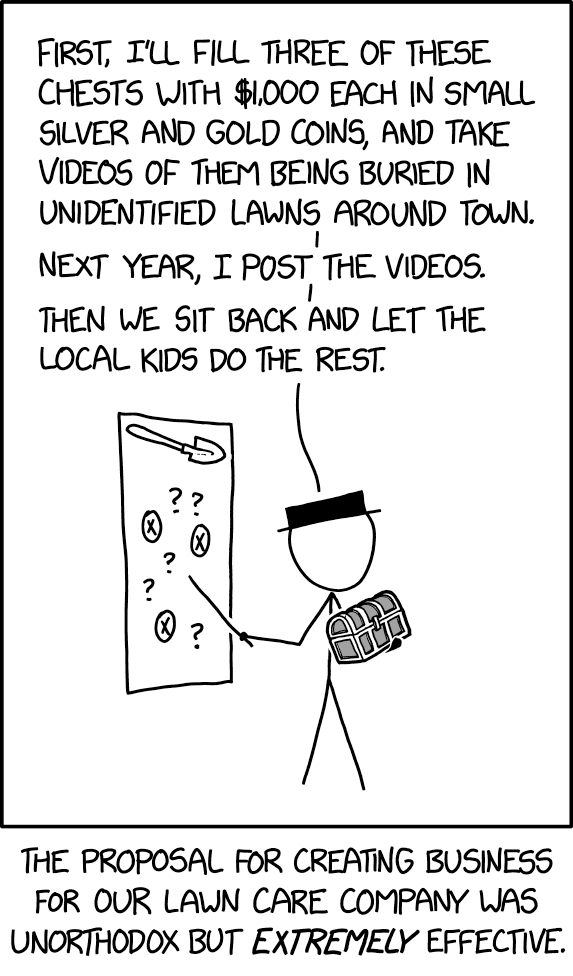The xkcd comic from February 17, 2024, titled "Treasure Chests," jokingly presents a proposal to increase a lawn care firm's business:
Assume that one had permission to bury the three chests in the respective lawns, and the posts contained nothing but the videos. The intention of the acts, as evidenced by the proposal, was secret at the time but not denied by the relevant entities upon investigation. As stated in the cartoon, the campaign was effective in leading children to damage some lawns, which resulted in greater profits for the business. The damage may have been caused by children to their parents' lawns or to lawns belonging to unrelated people if that makes a difference.
Would such a scheme be illegal?
